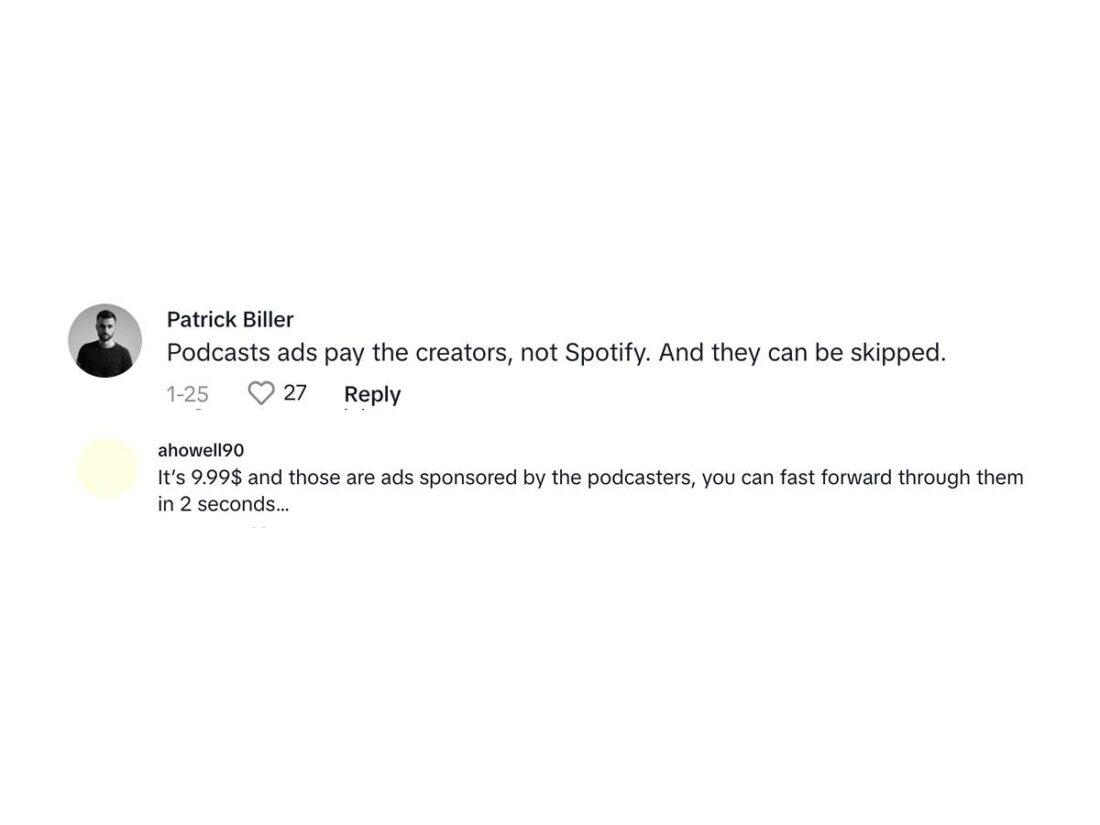The video labels Spotify Premium as the “biggest con in the modern age.”
Spotify, once hailed for its ad-free listening experience for Premium subscribers, has found itself once again at the center of controversy.
The issue came to light following a viral TikTok video by Mark, known as @moneywithmark, who discussed a growing frustration among Spotify’s loyal customer base. Mark’s complaint centers on the unexpected presence of ads in podcasts, which seems at odds with the ad-free promise that convinced many to opt for the platform’s Premium subscription.
This raises questions about the integrity of Spotify’s subscription model and the evolving landscape of digital content monetization.
Spotify’s False Promise
Mark’s video, with almost 2 Million views, voices the frustration felt by many.

Here, he started by reminiscing about the initial appeal of Spotify Premium, where one of the main selling points was an ad-free listening experience.
However, his excitement turns into disillusionment with Spotify’s expansion into podcasting. The introduction of podcasts was initially met with enthusiasm. But, it quickly becomes a source of discontent as he discovers ads peppered throughout his podcast listening experience.
His video sheds light on a broader sentiment of betrayal within the Spotify community. The expectation of an entirely ad-free experience, a key selling point of the Premium subscription, sharply contrasts with the reality of encountering ads in podcasts.

The core of Mark’s frustration isn’t just about the presence of ads but the principle of the matter. He felt misled that the promise of ad-free listening on Spotify apparently doesn’t include podcast content, which the platform has not communicated transparently.
However, Mark’s video reignited the issue and showed a large number of users still holding frustrations over it.
Spotify’s Stance on Podcast Ads
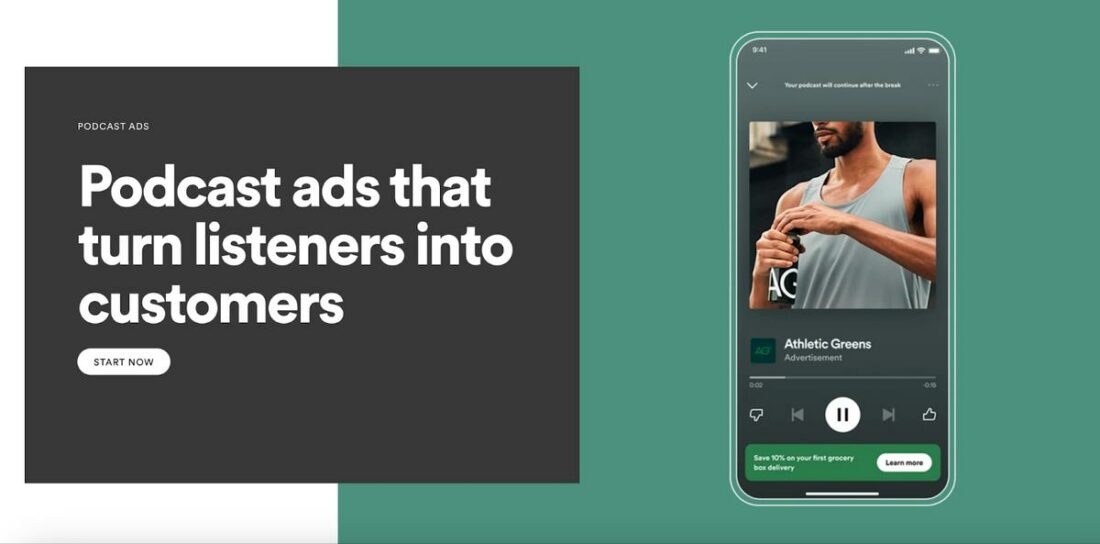
The issue of the existence of ads in Spotify’s podcasts isn’t new.
Users have been complaining about this even way back in 2021. Mark’s video simply reignited the issue and showed a large number of users still holding frustrations over it. However, Spotify’s response to this growing concern among its user base has been consistent.
They emphasize that there’s a distinction between music playback and podcast listening experiences on the platform.
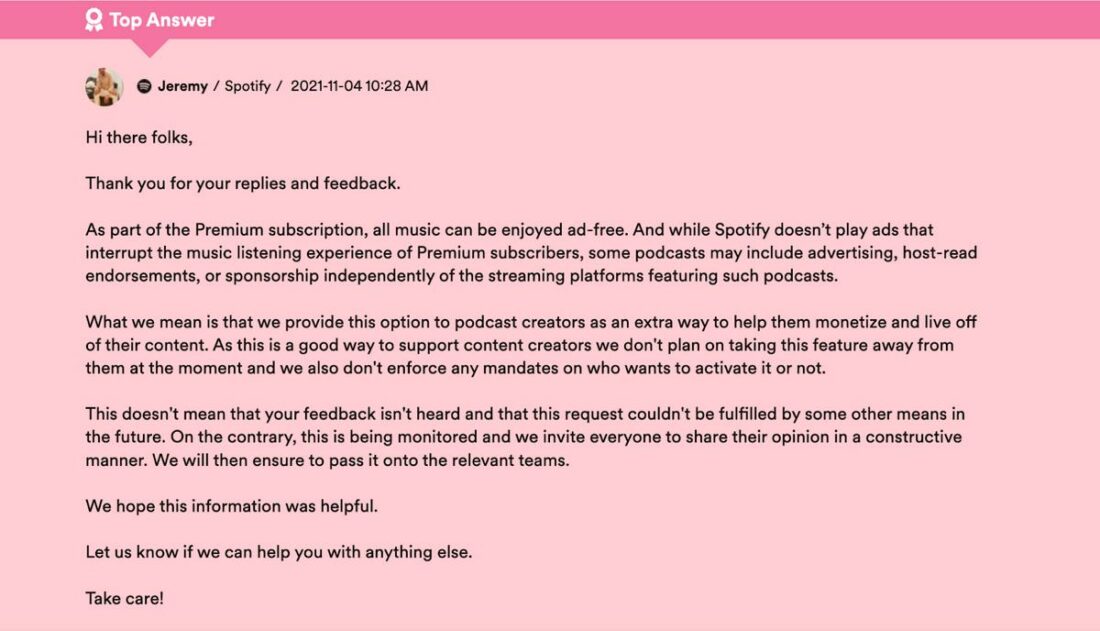
According to Spotify, while the Premium subscription does indeed remove ads from music, it does not guarantee the same for podcasts.
Instead, the platform allows podcast creators the autonomy to include third-party advertising, host-read endorsements, or sponsorship messages within their episodes.
This decision is rooted in Spotify’s commitment to supporting content creators, providing them with a means to monetize their work more effectively than what the platform can solely offer.
Unfortunately, Spotify claims that they don’t have much control over the dynamic ad slots on podcasts. The platform also says that they’re not even planning on taking this off in the near future.
Users also elevated this issue by posting a request on Spotify’s forum, where people can give ideas on how to improve the platform.
However, as of 2023, the case has been closed by Spotify since the request is “not something that our Idea submission process can accomplish.”
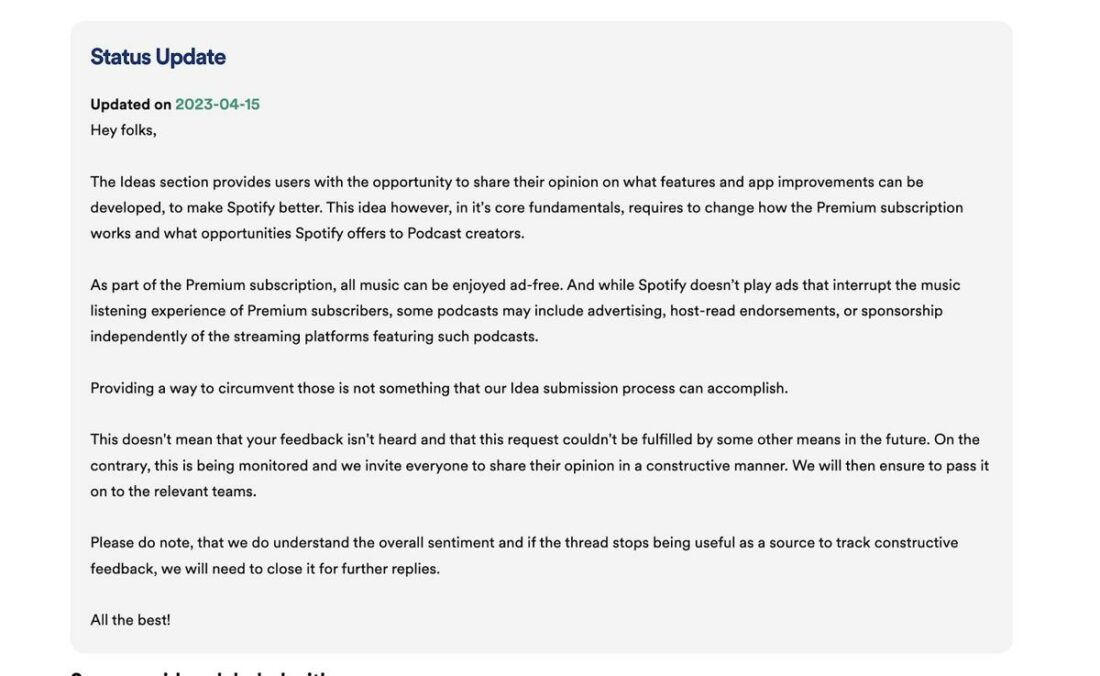
What Users Have to Say
Users have taken to various platforms, including Spotify’s own forums, to express their frustration, disappointment, and in some cases, understanding of the situation.

This sentiment was echoed by many, showing the widespread sense of betrayal shared by many Spotify Premium users. A lot of users say that this even affected their decision to switch to a different platform.
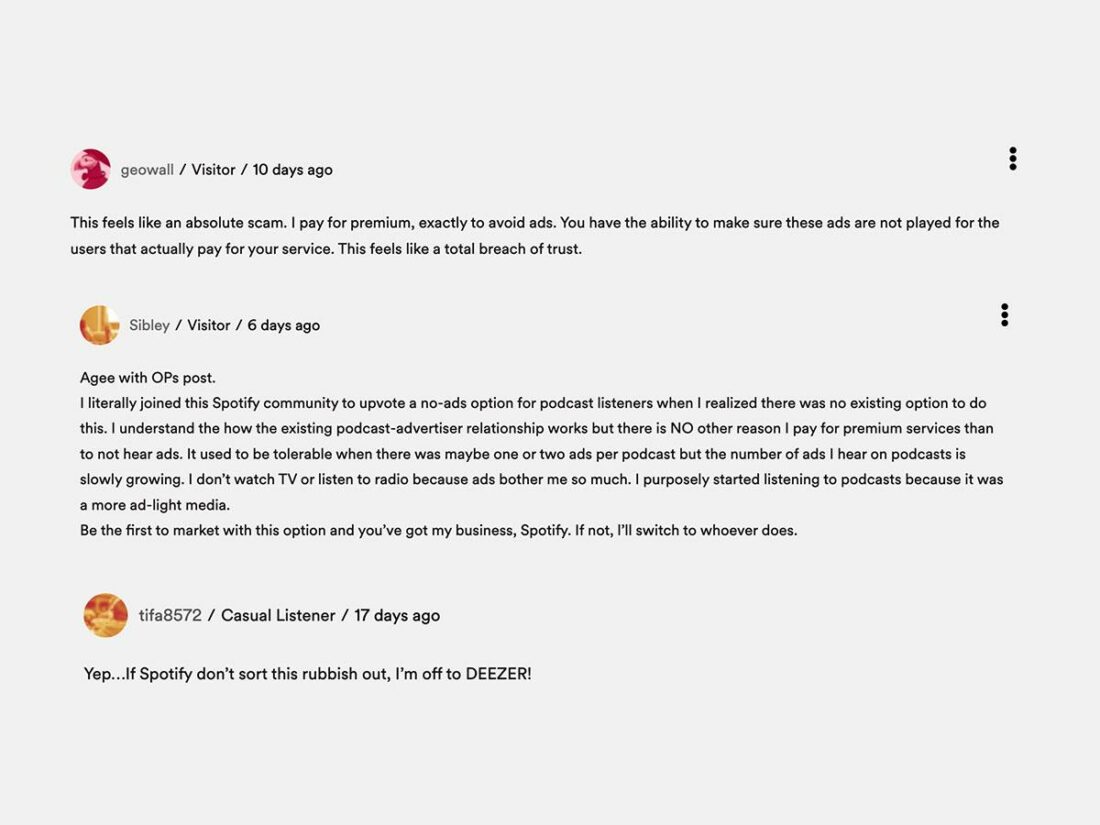
On the other hand, some users offered perspectives that painted the issue in a different light.
They pointed out the economic necessities behind podcast ads, noting that these ads are crucial for podcasters to earn revenue. This highlights the stance that the responsibility for ad inclusion lies with podcast creators rather than Spotify.
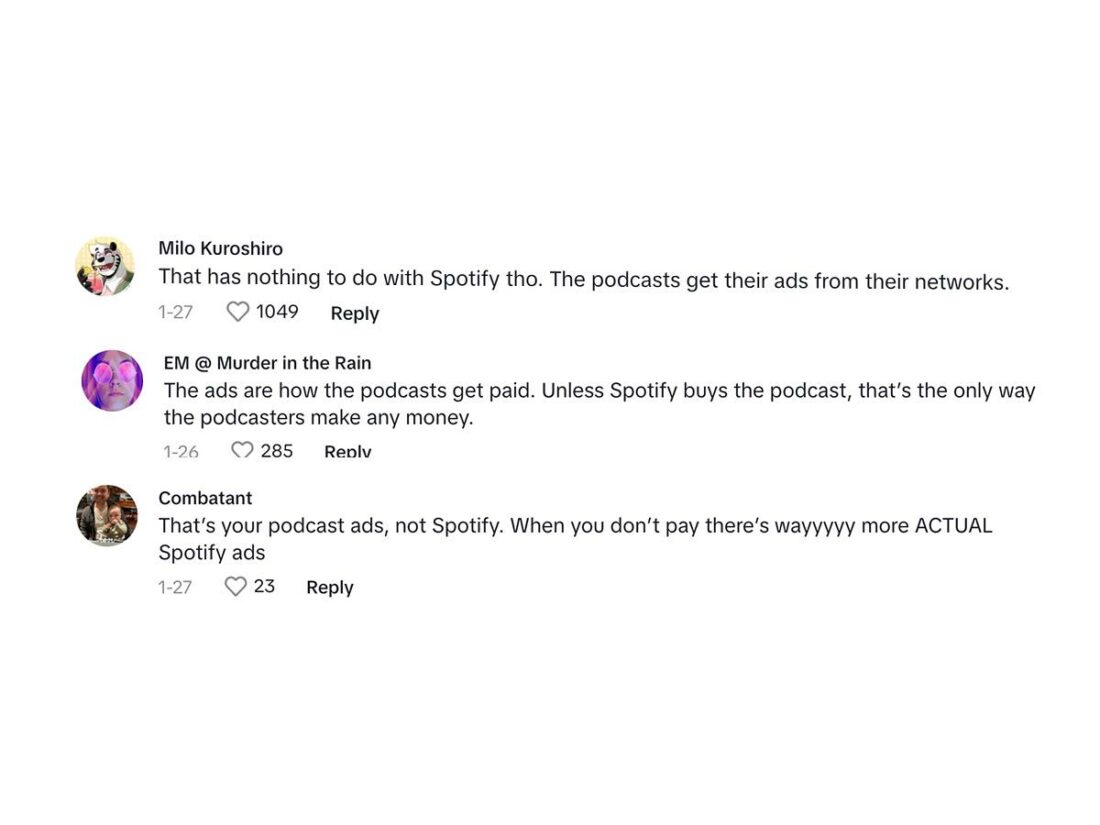
A practical approach to the issue is also emphasized by other users who mention the ease of skipping ads. While not addressing the principle of the matter, this perspective offers a workaround for those frustrated by ad interruptions.
